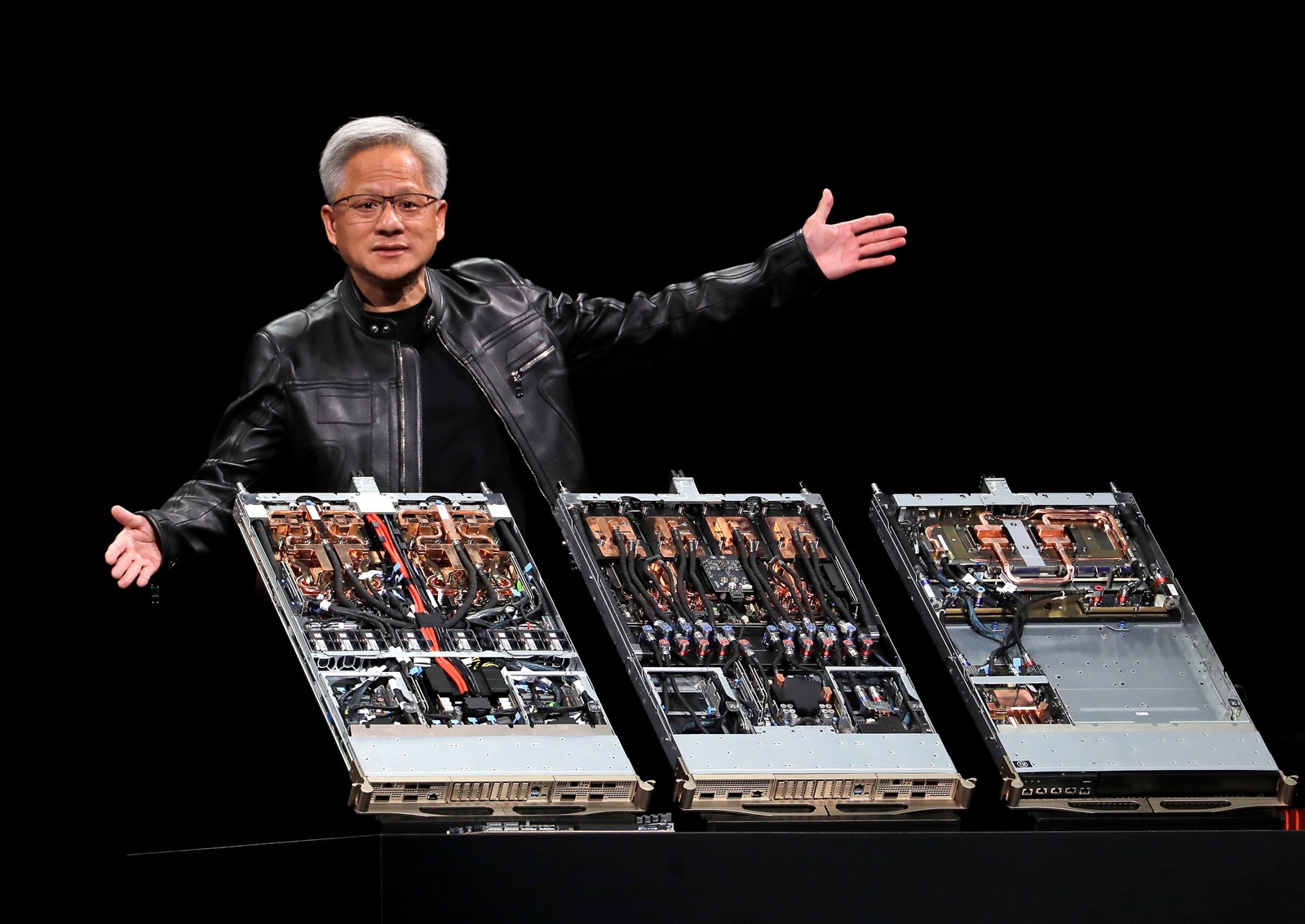
BANGKOK >> Nvidia’s CEO Jensen Huang says the technology giant has won approval from the Trump administration to sell its advanced H20 computer chips used to develop artificial intelligence to China.
The news came in a company blog post late Monday, which stated that the U.S. government had “assured” Nvidia that licenses would be granted — and that the company “hopes to start deliveries soon.” Shares of the California-based chipmaker were up over 4% by midday Tuesday. Huang also spoke about the coup on China’s state-run CGTN television network, in remarks shown on X.
“Today, I’m announcing that the U.S. government has approved for us filing licenses to start shipping H20s,” Huang told reporters in Beijing.
He added that half of the world’s AI researchers are in China. “It’s so innovative and dynamic here in China that it’s really important that American companies are able to compete and serve the market here,” he said.
Huang recently met with President Donald Trump and other U.S. policymakers — and is in Beijing this week to attend a supply chain conference and speak with Chinese officials. The broadcast showed Huang meeting with Ren Hongbin, head of the China Council for Promotion of International Trade, host of the China International Supply Chain Expo, which Huang was attending. Nvidia is an exhibitor.
Nvidia has profited enormously from the rapid adoption of AI, becoming the first company to have its market value surpass $4 trillion last week. However, the trade rivalry between the U.S. and China has been weighing heavily on the industry.
Here’s what we know.
The H20 graphics processing unit, or GPU, is an advanced AI chip — a type of device used to build and update a range of AI systems. But it’s less powerful than Nvidia’s top semiconductors today.
That’s because the H20 chip was developed to specifically comply with U.S. restrictions for exports of AI chips to China. Nvidia’s most advanced chips, which carry more computing power, are off-limits to the Chinese market.
Washington has been tightening controls on exports of advanced technology to China for years, citing concerns that know-how meant for civilian use could be deployed for military purposes. And in January, before Trump began his second term in office, President Joe Biden’s administration launched a new framework for exporting advanced computer chips used to develop AI — in an attempt to balance national security concerns about the technology with the economic interests of producers and other countries.


 PREVIOUS ARTICLE
PREVIOUS ARTICLE
